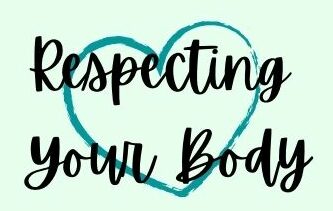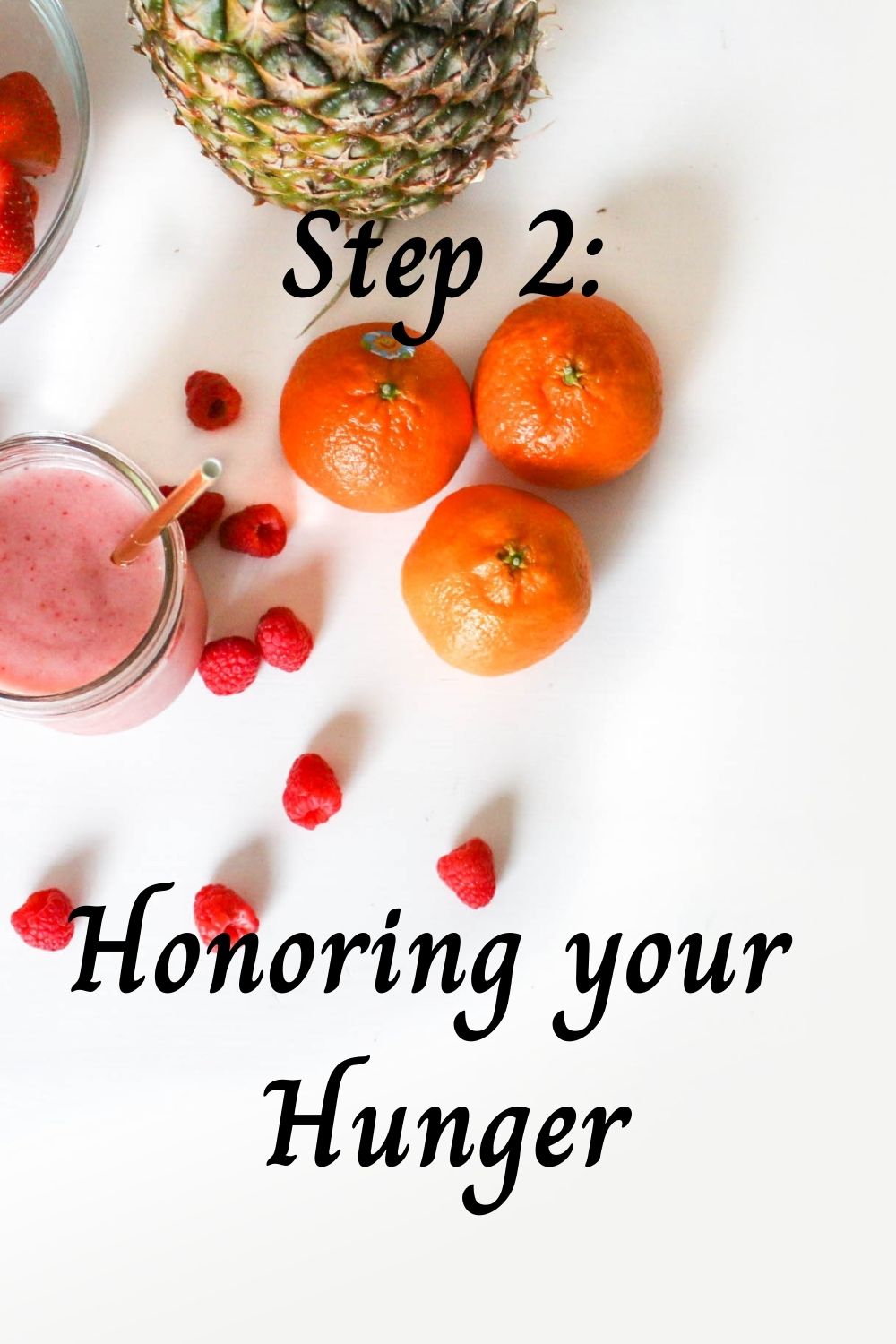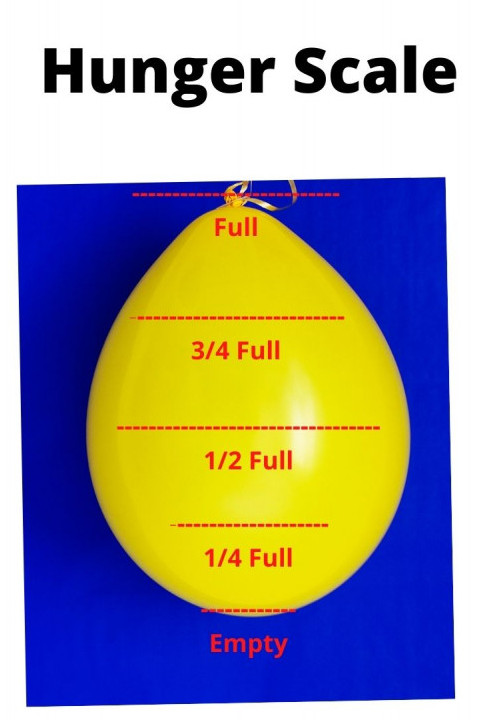It is simple, to sum up, the concepts of honoring your hunger and intuitive eating: Eat what your body wants whenever you feel hungry. That sounds easy enough, but what if you have no clue how to feed your body because you aren’t sure what your body is asking for or when you are truly hungry? You are not alone.
What Dieting Does To Hunger Signals
Dieting and diet culture has conditioned us to follow external cues, like the clock or a list of rules, rather than internal hunger signals. We become used to ignoring or controlling our hunger in the name of health and weight loss.
We hear things like this from everywhere:
- “Fast for 12-16 hours/Only eat in an 8-hour window”
- “Don’t skip breakfast”
- “Skip breakfast”
- “Don’t eat after 6 p.m.”
- “Eat a big breakfast/Eat less at dinner”
No wonder we are confused!
The good news is that hunger is a natural and intuitive signal, so you can train yourself to tune back into it at any time. Think of babies and toddlers for a moment, They naturally eat when they are hungry and stop when they are full at any time, day or night. We are taught about dieting, calories, and how we should eat as we get older, and we forget how to eat based on internal signals.
How do we get back to noticing gentle hunger after years of dieting? I’m about to explain what hunger can feel like and give you tips on how to re-discover your hunger and feed your body what it needs.
Learning What Hunger Feels Like
Your body has its unique way of expressing hunger. Your hunger will likely feel different from my hunger, and that’s perfectly normal. If you have no idea what hunger may feel like, these are some common signs of hunger to watch for.
- Stomach growling or gurgling
- Fatigue or weakness
- Trouble concentrating
- Stomach pain or discomfort
- Nausea
- Moodiness and/or irritability
Your body will experience hunger in its own way. Despite what others may tell you, there is no right or definitive way to feel hunger. You may have signs and symptoms that are not on the list, especially if you have medical conditions or take medicines that affect the way that your body feels hungry. For example, I have acid reflux, and sometimes hunger feels like acid burning in my stomach and moving upward. A few minutes later, more common signals like growling begin. There is nothing wrong with that.
If you are still uncertain what hunger feels like to you, try paying more attention to how your body reacts when it has been a while since you’ve eaten or you see a favorite food. That’s what being hungry feels like.
I found it helpful to keep a journal for a few weeks and take note of how I felt before and after eating. It helped me focus more on the subtle signals of fullness and hunger. Eventually, I noticed a pattern and realized that the burning feeling that I thought was indigestion or fullness was my body’s way of telling me that my stomach was too empty!
How To Feed Your Body
When you notice that you are beginning to get hungry, honor that and eat what appeals to you at that moment. Giving yourself unconditional permission to eat what you want will satisfy your hunger and help you regain a healthy relationship with food and your body.
When you deprive your body of what it wants, that is not honoring your hunger.
You may be craving crackers and cheese because your body needs something in that particular snack (i.e. a mix of fat, carbs, protein, salt, calcium, etc.) or maybe it wants to experience the taste and satisfaction that cheese and crackers will provide. Trying to pacify yourself by eating a cheddar-flavored rice cake will not give you the same nutrients or experience as cheese and crackers, and you will find you continue to crave food and may binge eat.
Remember, your body knows what it wants and needs. Food is a source of fuel and not the enemy.
It is often helpful to have a variety of foods that you enjoy available to pick from. At first, you may find yourself eating mostly the foods you weren’t allowing yourself to have regularly before. This is a normal phase that won’t last forever.
If you feel anxious at the idea of eating something you feel is “unhealthy”, take the time to explore why you feel that way and try to reassure yourself that it is okay to eat that food if you want it. Your body deserves to be respected, and you won’t wreck your health or your life by listening to your hunger for something, even cake or a burger.
If the anxiety and negative thoughts about food are persistent and leave you feeling stuck, you might benefit from speaking with a professional, such as a therapist or registered dietitian that has experience in intuitive eating or disordered eating. It can take time to undo the thoughts that diet culture spent years drilling in your head. It’s not your fault if you find this hard to do, but it is worth the work to get past it and be free.
Using A Hunger and Fullness Scale As A Guide
You have learned what hunger might feel like and ways to honor it, but you may be thinking, If I do that, I won’t stop eating!
Yes, you will.
By choosing to eat when you are merely hungry and not starving, you will be less likely to binge as you might have in the past. This will also give you the power to decide to stop eating when you are full, rather than stuffed. I will talk more in-depth about fullness in a separate post, but I would like to briefly touch on it here.
Fullness is your body’s signal to stop eating. Like hunger, your body has its own way of telling you when it is getting full. To help you figure out when to start and stop eating, the authors of the original book on intuitive eating recommend using a 1 to 10 scale to rate hunger and fullness, where 1 is starving, and 10 is stuffed to the point of feeling sick.
The ideal range you want to aim for is between 4 and 7, eating when you are starting to feel hungry and stopping when you are just full. It takes conscious effort and practice to stay in that range at first. If you end up outside that range sometimes, don’t stress out about it. The scale is a guide, not a requirement.
If you find that the 1-10 scale is too complicated, you can try something different. I like to think of my stomach as a balloon that can be empty, one-quarter full, half full, 3/4 full, or so full it could burst. The visual below will give you an idea of what that looks like.
If you prefer to use the balloon visual instead of the numbered hunger scale, the goal is to primarily stay between 1/4 and 3/4 full. I find it helpful to pause a few times when I am eating to ask myself if I am still hungry and enjoying my food. If the answer to either question is no, then I can choose to stop eating and save the rest for later.
Honoring You Hunger Helps You Make Peace With Food
I hope this post helps you become more in tune with your hunger signals and learn how to feed your body what it wants. It may require a lot of self-reflection and mental work to truly be able to honor your hunger. Letting go and giving yourself permission to eat anything, even foods that were once forbidden, can be scary at first, but it can also be a very freeing experience.
When you have finally discovered your hunger cues and learned to honor them, you can finally move on to making peace with food.
If you have any questions or advice about discovering or honoring hunger, please share in the comments!



Very eye-opening and interesting point of view you got here. I have been following those rules for most of my life but that is because I have type 1 diabetes, which I can’t really defy what my eating habits or schedule is going to be for each day. The only thing I put all of my attention on is the nutritional facts of what I eat. Every body is a different universe full of mysteries so I think that this can all be narrowed down to each person and what they aim for and what their goal is.
I agree. We are all different, so we shouldn’t force ourselves into the same diet box. I’m glad you have found what works for you!
This is a fascinating way of looking at hunger and thereby your body. I agree that we get told about calories and what we should eat and shouldn’t eat as we get older. Before that we very much eat when we are hungry. I have not come across the idea of intuitive eating with a scale of between 1 and 10, with optimum to ideally stay between 4 and 7. It is indeed a very interesting concept.
Thanks for this helpful post! Just as there are some people with type I diabetes, there are others suffering from Type II diabetes, and they can’t just eat what they like. Eating what appeals to them may be something that causes sudden death or serious havoc on their health. Most patients suffering from diabetes are always placed on a specific diet plan to help manage their conditions and live longer with it. Thanks for teaching us how to maintain a healthy relationship with food and our body! Thanks.
Joyce
True. If it makes you feel sick later, then don’t eat it.
Intuitive eating can work for those with diabetes. I would suggest joining the intuitive eating community forum and searching for diabetes if you would like more info.
Every time I am hungry and I don’t respond to it, I fall sick or have feverish conditions. I use to feel that I had issues with my body system. But with the way you explain it, it is obvious that hunger is a sign that I should respond to early enough and not let it weigh down my body system. The system will not be balance without indicators like hunger